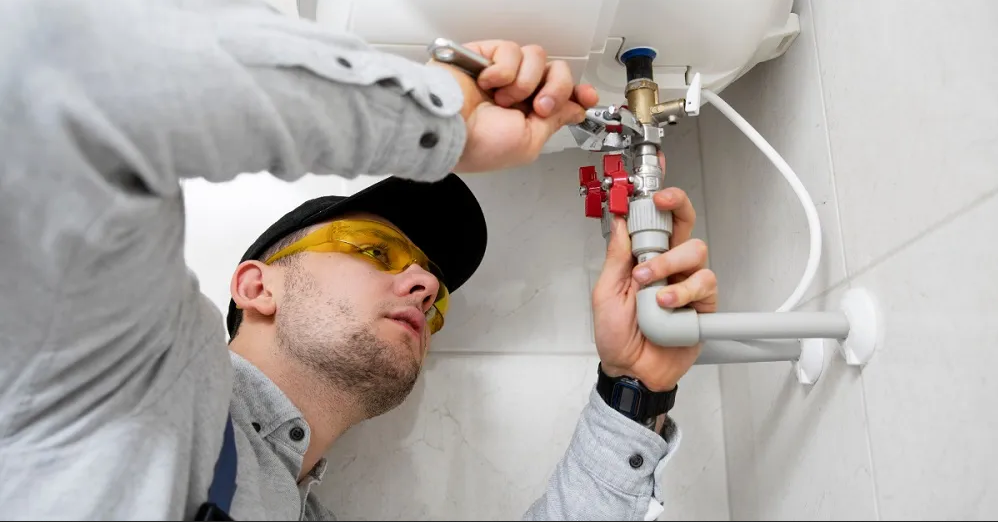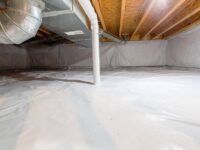Water Heater Troubleshooting: A Complete Guide for Homeowners

A functional water heater is essential for daily comfort—providing hot water for showers, laundry, dishwashing, and more. But when your water heater starts acting up, the inconvenience can be immediate and frustrating. Whether you have no hot water, not enough hot water, or strange noises coming from your tank, this guide will walk you through the most common water heater problems and how to troubleshoot them.
Whether your water heater is gas, electric, or tankless, some issues are easy to diagnose and fix, while others may require a licensed plumber. Read on to learn how to handle common water heater malfunctions and when to call in professional help.
1. No Hot Water Possible Causes (Electric Water Heater):
- Tripped circuit breaker
- Faulty heating element
- Defective thermostat
What to Do:
- Check your home’s circuit breaker panel and reset any tripped breakers.
- Test the upper and lower heating elements with a multimeter.
- If a heating element is faulty, it may need to be replaced.
- Test or replace the thermostat if the heating elements are functioning.
Possible Causes (Gas Water Heater):
- Pilot light is out
- Faulty thermocouple
- Gas supply interruption
What to Do:
- Follow your manufacturer’s instructions to relight the pilot light.
- If the pilot won’t stay lit, the thermocouple may be dirty or damaged.
- Ensure the gas valve is open and your utility account is in good standing.
2. Inadequate Hot Water Possible Causes:
- Thermostat set too low
- Undersized water heater
- Sediment buildup in the tank
- Malfunctioning heating element (electric models)
What to Do:
- Check and adjust the thermostat to 120°F.
- Flush the tank to remove sediment, which can insulate the heating element.
- Consider upgrading to a larger capacity water heater or a tankless model if your household hot water demand has increased.
3. Water Takes Too Long to Reheat Possible Causes:
- Sediment buildup
- Aging heating elements or burner
- Undersized tank
What to Do:
- Flush the tank to remove mineral deposits.
- For electric heaters, test and replace faulty heating elements.
- For gas heaters, ensure the burner is clean and functioning properly.
- Consider a higher recovery rate unit if you frequently run out of hot water.
4. Water Is Too Hot Possible Causes:
- Thermostat set too high
- Faulty thermostat
What to Do:
- Lower the thermostat to 120°F.
- If water remains too hot after adjustment, the thermostat may be malfunctioning and should be replaced.
5. Discolored or Rusty Water Possible Causes:
- Corroded anode rod
- Rust inside the tank
- Corroded plumbing pipes
What to Do:
- Drain several gallons from the tank to check if the discoloration persists.
- If only hot water is discolored, the anode rod may be deteriorated and should be replaced.
- If both hot and cold water are rusty, your home’s plumbing may need inspection.
6. Foul-Smelling Water Possible Causes:
- Bacteria growth in the tank
- Magnesium in the anode rod reacting with water
What to Do:
- Flush the tank with a hydrogen peroxide solution.
- Replace the magnesium anode rod with an aluminum-zinc alternative to reduce sulfur smells.
- Consider installing a water purification system if the problem persists.
7. Leaking Water Heater Possible Causes:
- Loose drain valve
- Corroded tank
- Faulty temperature and pressure (T&P) relief valve
- Leaking inlet or outlet connections
What to Do:
- Tighten loose fittings with a wrench.
- Inspect the drain valve and T&P valve for drips or malfunction.
- If the tank itself is leaking, it has likely rusted through and must be replaced immediately to avoid water damage.
8. Strange Noises (Rumbling, Popping, or Banging) Possible Causes:
- Sediment buildup on the tank bottom
- Heating element burning sediment
- Expanding and contracting pipes
What to Do:
- Drain and flush the tank to remove sediment.
- Install a water softener if you have hard water.
- Secure any loose pipes to prevent expansion-related noise.
9. Low Hot Water Pressure Possible Causes:
- Mineral buildup in pipes or tank
- Faulty plumbing fixtures
- Partially closed shut-off valve
What to Do:
- Check your shut-off valve to ensure it’s fully open.
- Remove and clean aerators on faucets and showerheads.
- If pressure is low only on the hot side, sediment buildup in the heater or pipes is likely and may require professional flushing or repiping.
10. Pilot Light Won’t Stay Lit (Gas Heaters) Possible Causes:
- Faulty thermocouple
- Dirty pilot light orifice
- Drafts or wind near the vent
What to Do:
- Clean or replace the thermocouple.
- Inspect the pilot assembly and clean any debris.
- Ensure the area is free of drafts and that the vent is correctly installed.
Maintenance Tips to Prevent Water Heater Problems
- Flush the Tank Annually – Prevent sediment buildup.
- Test the T&P Valve – Ensure safety functions are working.
- Check the Anode Rod Every 2–3 Years – Replace if more than 50% corroded.
- Inspect for Leaks or Rust – Early detection can prevent major damage.
- Set the Thermostat to 120°F – Safe and energy-efficient.
When to Call a Professional
While many minor issues can be addressed with basic troubleshooting, certain situations require a licensed plumber or technician:
- Water leaking from the tank
- Electrical or gas supply issues
- Thermostat or heating element replacement
- Complex installations or upgrades
- Pilot light and burner problems that persist after cleaning
If you are ever unsure, it’s best to consult a professional plumber to ensure safe and correct repair.
Conclusion
A malfunctioning water heater doesn’t always mean you need a replacement. In many cases, basic water heater troubleshooting can quickly identify and resolve the issue. From checking thermostats and flushing sediment to replacing anode rods and relighting pilot lights, a bit of knowledge can go a long way in saving you time and money.
With regular maintenance and early attention to warning signs, you can extend the life of your water heater fishers indiana and avoid the inconvenience of cold showers or costly emergency repairs. And when in doubt, don’t hesitate to call in a professional to ensure your hot water stays reliable and safe.





